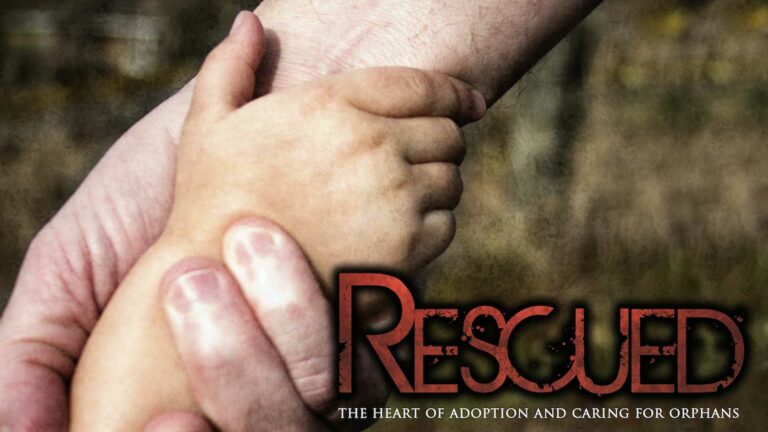If spanking were to be put on public trial how would the jury rule?
In countries like the Netherlands, Germany, New Zealand and more than 40 others the verdict has come down firmly against – they’ve all instituted spanking bans. In Canada we could say the jury is out – we’re allowed to spank children over two. But what’s worrisome is that spanking opponents keep pushing the issue: since 1997 various members of Parliament have tried to pass anti-spanking amendments eight times, the latest happening just this year.
In the court of public opinion spanking should win any test it’s put to because, after all, it works. It is a God-ordained means of discipline, and it is no coincidence that it is also an effective means of discipline.
The trial is rigged
But spanking never gets a fair trial. Just consider these three issues it has to overcome…
1) Mistaken identity
The act of a raging drunken father beating up his son bears little resemblance to a loving calm dad giving his son a spanking. Unfortunately, members of the jury don’t seem able to tell the difference between the two.
Some of this confusion is understandable. Raging fathers will call what they do “spanking,” but of course abusers often lie so the jury should know better than to trust their testimony. Another source of confusion is that many of the abused also use the term “spanking” to describe what happened to them.
This is a horrible case of mistaken identity that we need to clear up if spanking is to win its day in court.
2) Witnesses intimidation
The very same people who will publicly attest to their love of God by wearing a cross, or who will speak up for the unborn by wearing a pro-life T-shirt, or speak out against gay marriage via social media, don’t dare advocate for spanking. Why? Because we’ve all heard stories about how various child protection services have taken people’s kids. How’s that for intimidation?
Spankings best witnesses don’t want to take the stand – we know this is an important discipline tool, but few of us see it as important enough to risk losing our kids over. So those who do it right keep that such a closely guarded secret that even their neighbors don’t know.
The end result is that when claims are made that spanking is the worst sort of abuse, the witnesses that could best correct this case of mistaken identity don’t want to – we’ve been intimidated into silence.
3) Offers of immunity are rejected
A second group of parents is staying silent for a different reason. They’re not intimidated; they simply feel too guilty. These are parents who have given spankings in anger and out of frustration. To be clear, we’re not talking about child-beaters – though the parent’s motivations are all wrong their actions still look quite like godly spanking. Restraint is still used in both where the spanking is directed – to the child’s back end, where no damage will be done – and in how much is administered. This is not a parent losing it. But it is a parent punishing rather than disciplining, a parent meting out justice without love.
Some in this group know all about loving discipline, and sin anyway. That leaves them feeling guilty and then, when the topic of spanking comes up, they’d really rather talk about something/anything else. But this is no way to address our guilt – wallowing in it silently is no solution. If you’ve spanked the wrong way, God wants you to repent, both to Him and to your child, and to turn from your sinful behavior. And, praise God, He offers forgiveness!
Other parents simply don’t know how to spank properly, though they can sense there is something wrong about how they are going about it. There is a need for repentance here too, but also education – to turn away from our sinful ways we need to know how to act. Parents who don’t know better need to dedicate themselves to finding out what God has told us, and there are some excellent resources to be found (including three I recommend here).
It’s a given that Christian parents who do spanking right are also parents who at some point have done spanking wrong. We shouldn’t minimize our sin, but we also shouldn’t minimize the grace given us when God and our children accept our repentance. To hold on to guilt then, and let it silence us, is to reject what the grace we’ve been offered.
Spanking needs its imperfect practitioners to speak up on its behalf, because if we won’t, there is no one else.
Keys to a public defense
These three issues put spanking in a tough spot, with accusers aplenty but few defenders. So even as we can be cautious about how we go about it, we do need to become public defenders of spanking. Or rather, we need to become public defenders of spanking done biblically.
Spanking isn’t the sort of topic that can be addressed with “I spank my kids” T-shirt slogans or “Spanking is not abuse” bumper stickers. The extent of the confusion is more than can be addressed via those short-form mediums.
What’s needed are conversations. Conversations over backyard fences. Over coffee. And maybe even over social media. And, more than we might imagine, conversations at church: Christians, too, are being swayed into equating this biblically-mandated practice with abuse.
So what might such a conversation involve? And what might it look like? What follows is a mock conversation (based on real ones) between a Christian, Daniel, and two liberal-thinking friends who don’t spank and don’t really know anyone who does. Daniel understands that his position will be very new to his friends so he’s prepared to be repetitious – he knows he may need to make the same point a few different ways.
He also knows that on such a contentious issue things could get heated fast, so he wants to, whenever possible, make his point by asking questions rather than making assertions. Questions also help when faced with an insulting point – an insult can be defused by simply asking the insulter to clarify their insult. “You’ve said spanking is abuse because both involve hitting, so do you think lovemaking is rape because both involve intercourse?”
Another important technique is to use analogies whenever possible. Jesus taught using parables in part because stories can help make hard to understand points much more clear.
***
Leo: I was raised in an era where they still practiced corporal punishment in schools. So I got hit at school and then my heavy-handed dad would beat me when I got home. Why would anyone think spanking is a good idea?
Ariel: I grew up in a home where spanking and screaming were the norm and I remember how, even at 6 I said, “I’m not going to do this to my kids.” I felt ashamed. I just wanted my parents to love me. Now I do discipline by the golden rule: I treat my children how I want to be treated. There’s no way I’d spank my kids.
Daniel: We do spank. It is important for a child to be taught limits – be taught to listen and submit to authority – but it is just as important that they know they are loved. So whereas my daughter is regularly given spankings, they are conducted calmly. Her mom or dad is controlled, and not angry, and after the spanking comes hugs and a talk. So there is no confusion about whether mom or dad still loves her. Meanwhile, the substitute that I’ve most often seen substituted for spanking is screaming. I’ve seen parents who would never consider smacking their child’s bottom think nothing of yelling at their toddler. Now that can be confusing – on the one hand Mommy will say she loves them, and on the other hand she regularly screams at them. As the Bible says, we must discipline, but in love (Prov. 13:24). I think that can be done with calm spanking. I don’t understand how it can be done with screaming.
Ariel: Don’t call it spanking. It’s hitting. If you’re going to hit a tiny, defenseless human, own it. Don’t use cutesy euphemisms. Abuse is abuse.
Daniel: Wow, this got nasty fast – you’re really going to call me a child abuser? Are you comparing a father who in a controlled measured way smacks his child on the bottom with a father who in a drunken rage punches his son in the face?
Ariel: There’s a difference, but it’s still the same kind of act – in both cases it’s hitting.
Daniel: Do you believe that shoving someone out of the way of an oncoming train is the same kind of act as shoving them in front of one? In both cases there’s pushing.
Ariel: That’s different because in the first case the intent is to help the person and in the second it’s to hurt them.
Daniel: Exactly. The different purposes of the pushing make them completely different acts. I spank my kids so that they will learn right from wrong, learn self-control, and learn to respect authority. I want to help, not harm. And since my intent is so completely different from that of an abusive father, the very act itself bears no resemblance to abuse – instead of punches to the face I give smacks to the bottom, where it will sting but not harm. How much more different could it be?
Leo: I wouldn’t call it child abuse, but I do think spanking sends mixed signals. If I tell my child that hitting is wrong, but when he does something wrong he gets hit/spanked it tells him that when he feels wronged he can hit.
Daniel: It’s important for children to learn there are some things that mommy and daddy can do that he is not allowed to do. For example, if I tell my child she can’t watch a program, but I say it is fine for me and mommy to watch, it is clear I am setting different standards for us than for her. And when it comes to spanking, a child is able to tell the difference between when she tries to solve something with her fists, and when daddy, calmly and in control, spanks her for hitting someone. But what you say about mixed signals does come into play when a parent isn’t controlled or calm. Then what the parent is doing would seem very much like what the child does when she strikes out at another child for annoying her.
Leo: I’m not accusing you, but the majority of people that I know do not spank when they are calm and controlled.
Daniel: Therein lies the problem – when a child is spanked in anger, this is vengeance, not discipline. As one pastor put it, “Discipline is corrective and is applied for the sake of the one receiving it. It is not punitive, and is not rendered for the sake of the one giving it….When you are highly motivated to discipline your kids, you are not qualified.” Or to put it another way, if you want to spank your kids right now, that is a good reason not to do so.
Ariel I just don’t see how it’s not hypocritical to say, “Don’t hit anyone” to our kids, but then spank them. I don’t see how that is logical.
Daniel: I will, on occasion, drink a glass of wine in front of my children. And when they ask for a taste I tell them no. It is not hypocritical to have different standards for children than for adults.
Ariel: Here is a thought to consider, if other non-physical options exists why use spanking?
Daniel: The reason I spank is because God tells us corporal punishment is a helpful way of disciplining our child. And it’s no coincidence that the method God prescribes turns out to be an effective and quick corrective. All discipline (time outs, stern warnings, lectures, etc.) is going to involve “emotional trauma.” But with a spanking it can often be brief: willful disobedience happens, the corrective is explained and applied, the child says she is sorry, forgiveness is given, hugs and kisses are exchanged and play then continues. I want to add, spanking is not the only discipline we use – we talk, we explain, we send them to their room, etc. But when our daughters do something they know they are not allowed to do – when the disobedience is clear (it isn’t a matter of confusions, misunderstanding, immaturity) then we spank.
Leo: Does spanking always work? What about when it doesn’t work?
Daniel: You’re right, spanking doesn’t always have the immediate result we’re hoping for. And that’s often when one of our kids has been up late a few nights in a row and now they’ve gotten themselves so worked up they are completely out of control. Then, instead of a spanking, the best thing might be to send a child to their room, or cuddle with them, so they can have time to regain their composure. The goal is always the same – to teach and guide them, and sometimes it is better to offer mercy than justice. It can be tough being a parent and trying to figure this all out. But I’m very thankful God has offered so much guidance in his Word on disciplining children and offered up the very effective, though not fool-proof tool or spanking. To answer your question, when spanking doesn’t work we’ll try something else. It isn’t the only form of discipline we use.
Leo: Isn’t the intent if spanking to cause pain in order to gain compliance? I fully acknowledge that spanking is not child abuse done properly, but its intent is still to cause harm whereas with timeouts the intent is to cause discomfort as well as help them figure out what to do better next time – it gives them time to think through things and improve their problem-solving skills.
Daniel: “Discomfort” is a good word. The intent of spanking is not to cause harm (and no harm is done – that is why it is done on the behind – discomfort is done, but no harm). The goal is teaching. I talk with my daughter after a spanking, we work through what she could have done differently and what she should do in the future. So like your child, she learns problem-solving skills, and also what is wrong and what is right. The goal is to teach.
Leo: Couldn’t you do that all minus the spanking part?
Daniel: Ah, but why would I? Spanking is an effective form of discipline, and I have found it more so than many others.
Ariel: How do you know for sure that the effective part of the ritual isn’t the talking through?
Leo: Ariel beat me to it…
Daniel: Ariel, I’ll answer your question, but I also want to turn it around and direct it back at you. If you’ve never tried spanking, or tried it once, or tried it in ways that were not careful, considered and controlled. I want to ask you, how do you know that spanking, properly done, and implemented consistently, isn’t more effective than the approach you use now? As for which part is the more effective, the spanking or the talking, well, both are necessary. So are the hugs, so is the repentance and forgiveness. But spankings occur when my words are being ignored. As I’ve shared spanking is not the only form of discipline I use, so I am able to contrast and compare for what works best with each one of my kids.
Leo: But when do you stop? What age?
Daniel: It peters out as they get older for a few reasons. First, it’s because the goal of parenting is to “graduate” a self-discipline adult, so the reins are loosened more and more as they get older. But when they are young things are a good deal stricter. Some people try the reverse – little discipline early, and then find themselves trying to get strict later and regulate their rebellious teen’s every waking moment. Won’t work – this is when he should be taking on responsibility, not when he should be treated like a 3-year-old. Another reason spanking stops is because there are other more effective ways of causing older children “discomfort” – taking away their driving privileges, or smartphone. A third reason spanking isn’t needed as children get older is because they do learn empathy and are better able to understand the wrong they have done. There’s no need to discipline a penitent sinner.
Ariel: I bet if you asked a 3-year-old why she got a spanking, she would say it was because daddy was mad at her. Spanking equals control and dominance, not love!
Daniel: You would lose that bet with my daughter. My children understand what God tells us in Proverbs 3: “…the Lord disciplines those he loves, as a father the son he delights in.” My kids know that discipline equals love, and a lack of discipline would equal a lack of love.
Leo: I’ve got to run, but I’ve enjoyed the discussion.
Ariel: I’m going too, and I have to say I’m happy to be done with this conversation.
Daniel: It doesn’t look like I’ve convinced either of you to take up spanking I do hope I’ve given you reason to stop equating a spanking done in a controlled loving manner with the abuse that happens when an enraged parent beats up a child. I hope you’ll acknowledge that the two are so very different that they really shouldn’t be spoken of in the same breath.
***
Spanking is being tried in the court of public opinion and the trial is rigged. That’s why we need to speak up. We can speak cautiously, and wisdom might dictate that those with an empty roost should take the lead because they have the least to lose. But we all need to speak, whether over the back fence with a neighbor, or more publicly in a political setting. Spanking is being equated with abuse, but God says loving fathers will use this corporal punishment. So speak out, and spank in love. Let us be a light to our friends and neighbors on this issue showing how in this – as in all things – God’s ways are better than anything the world has to offer.
Spanking does have some public defenders, including ARPACanada, who in 2013 released an excellent policy report about corporal punishment which they sent to every Member of Parliament. You can find it here.














